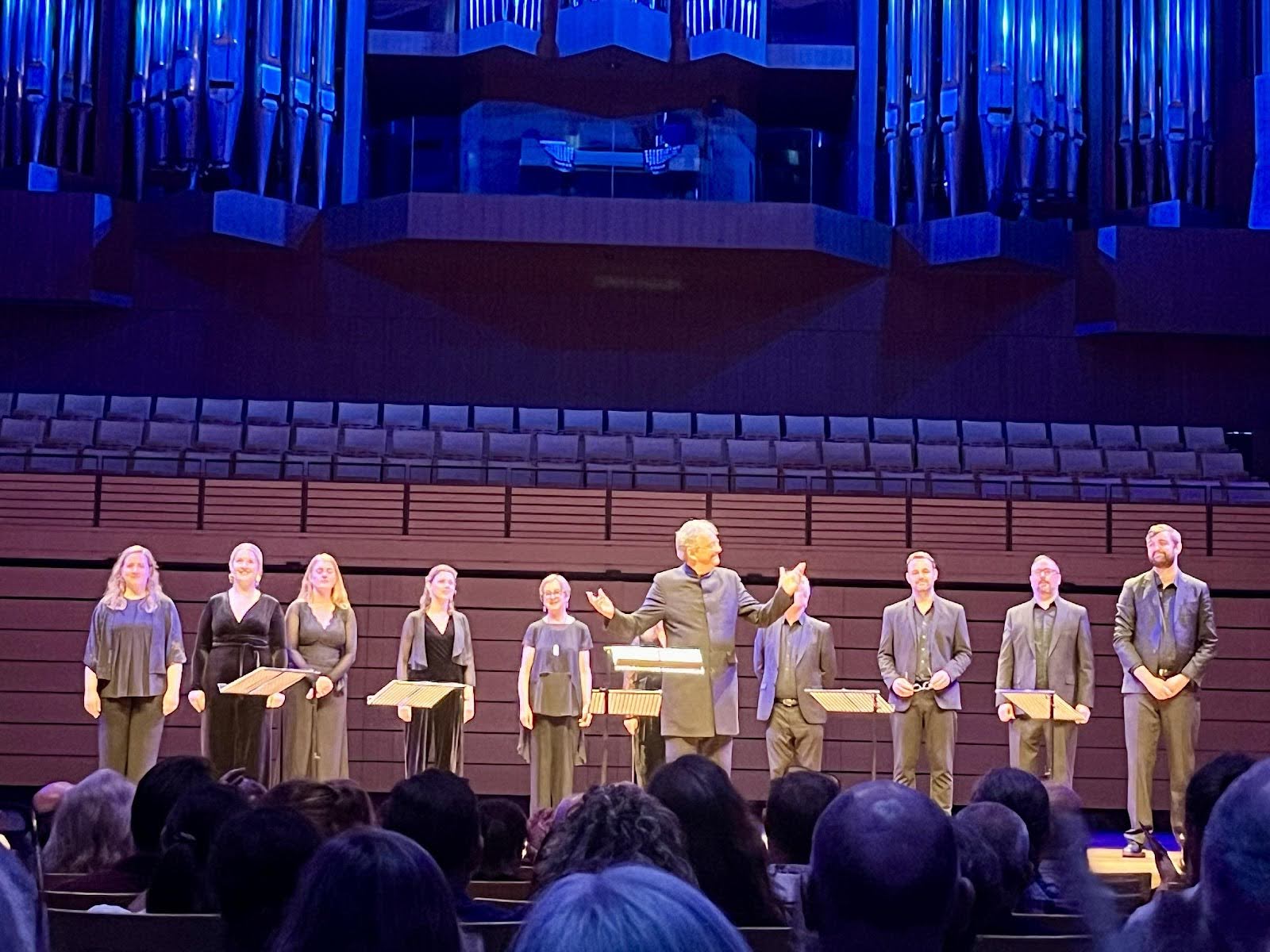Arts Review
The Tallis Scholars Present Chant

The Tallis Scholars Present Chant
QPAC Concert Hall,
10th October, 2025
Dr Gemma Regan
An incredible homage to the human voice
As the lone soprano’s high C rang out across the packed concert hall of the QPAC in the Miserere Mei by 17th-century composer Gregorio Allegri, I glimpsed the angelic realms! Miserere Mei is the Tallis Scholars’ bread and butter in performances, the one everyone recognises for its haunting melodies. An exquisite madrigal of the Renaissance, embracing the intricate polyphonies with the human voice. The Tallis Scholars famously brought the little-heard sacred Renaissance polyphony to global concert stages and have been performing for over fifty years!
Musical Director Peter Phillips founded The Tallis Scholars in 1973 at 19, whilst the organ scholar at Oxford. He wanted to put on concerts of music that he enjoyed singing and conducting specialising in a cappella music, with music by Thomas Tallis and William Byrd in particular. He addressed the Brisbane audience after the performance, commenting that it was his tenth performance in Brisbane, with their first performance in 1985 and their first QPAC performance in 1992.
The spiritual program spanned eight centuries, from the rare medieval female composer and visionary Hildegard von Bingen to the still living Arvo Pärt, coinciding with his 90th birthday. There was also a treat with the brief modern Lay a Garland by Robert Pearsall as a fabulous encore.
The 10-strong choir consisting of four sopranos, two altos and four males singing tenor and bass certainly packed a punch with their fabulous ecclesiastical chants echoing around the concert hall in reverence.
The four sopranos peppered the show with delicate liturgical chants from von Bingen, including O Virtus Spiritus Sapiente. A four-word painting where the notes accompany the meaning of the words, with the highest note being the word high - Altum.
The bass voices almost took the place of the didgeridoo, droning in Pärt’s Triodon with long sustains. The three odes had the men’s harmonies slightly behind the women, creating an unusual but spine-tingling dedication to the Blessed Mary.
The highlight was the fabulous Miserere Mei, Deus, where the choir were scattered amongst the hall with four soloists in the organ pit way up high and one over in the wings looking down on the five below. It created an ethereal and delicious aura in the room. The piece is famed for its unusual use of a tone lower reciting note, normally the same in chants, creating a ‘tonus peregrinus’ - a wandering tone, resulting in the mystical high C and an incredible performance by all.
The massive applause echoed almost, but not quite as much as the powerful voices that created a divine and inspirational evening celebrating the diversity of chants by the first musical instrument, the human voice. Phillips was signing CDs and programs as the rockstar of the Gregorian world and was a delight to meet. Despite being disappointed that they did not perform my favourite Tallis piece Spem in allium, I can’t wait until their next visit down under!